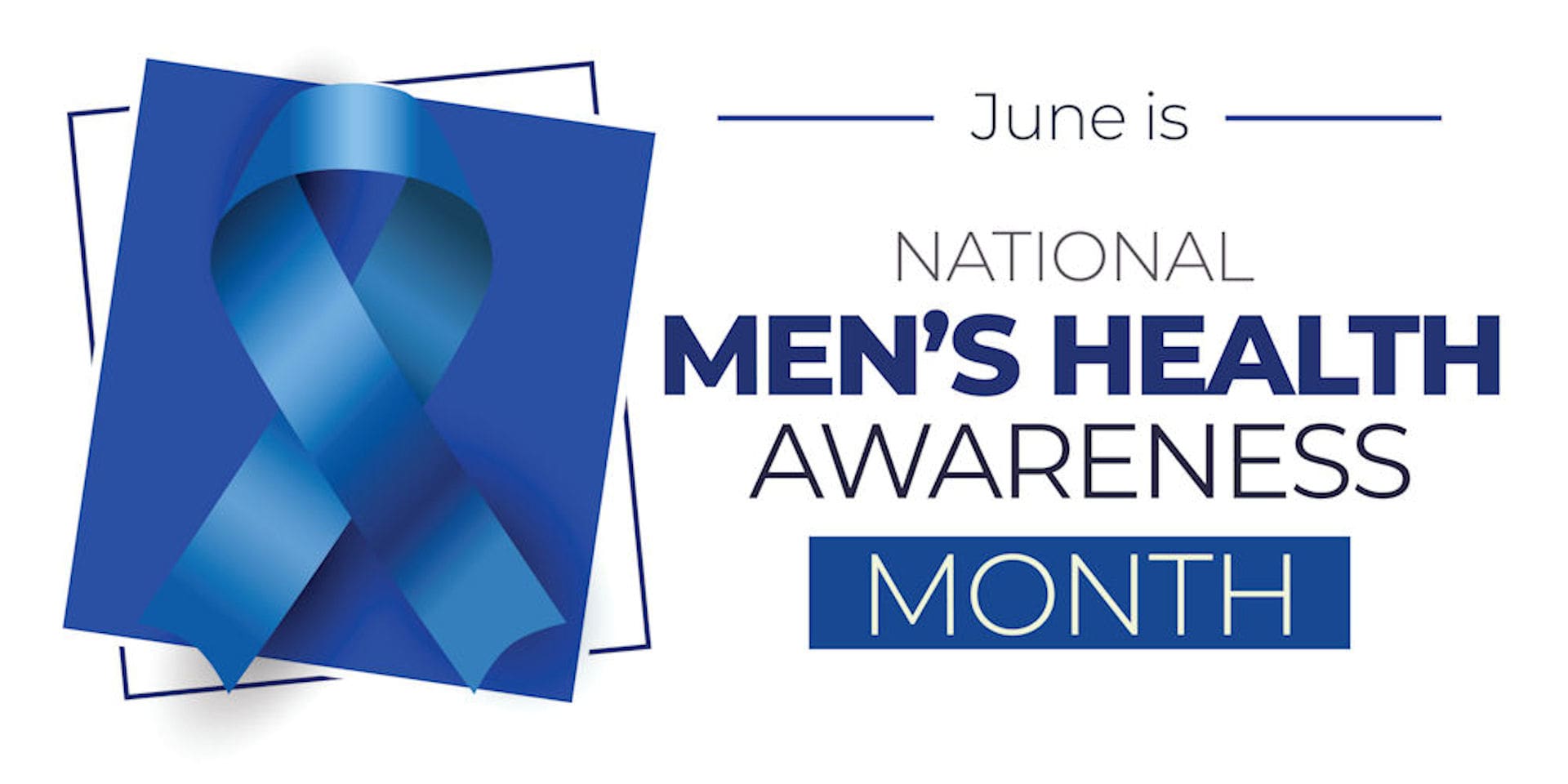June is recognized as Men’s Mental Health Awareness Month, a crucial time specifically dedicated to raising awareness of the unique mental health challenges faced by men and boys across the globe.
During this month, we aim to shed light on the often-overlooked struggles that men encounter, while encouraging open conversations and fostering an environment that promotes self-care and support. The pervasive stigma attached to mental health issues frequently discourages men from seeking help, causing them to suffer in silence and negatively impacting their overall well-being.
In some cases, this reluctance to reach out for assistance can lead to tragic outcomes, including severe mental health crises and even loss of life. By recognizing Men’s Mental Health Awareness Month, we hope to break down these barriers, empower men to prioritize their mental health, and ultimately create a more compassionate and understanding society for everyone.
The History of Men’s Mental Health Awareness

The origins of Men’s Mental Health Month can be traced back to Men’s Health Week, which was first established in the United States in 1994. The primary goal of Men’s Health Week was to raise awareness about health issues that could be prevented and to encourage men and boys to seek early detection and treatment for these problems. This initiative helped bring attention to a wide range of health concerns affecting men, including physical, emotional, and social well-being.
As the years went by, advocates involved in Men’s Health Week realized that there was a pressing need to specifically address mental health as a crucial component of men’s overall health. They understood that mental health issues often went unnoticed or were ignored due to societal expectations and the stigma surrounding these problems. As a result, Men’s Mental Health Month was created to fill this gap and bring much-needed attention to the mental health challenges faced by all males around the world.
Throughout Men’s Mental Health Month, various organizations and individuals come together to host events, share information, and engage in discussions that aim to educate the public about men’s mental health. Ultimately, the goal is to create a society where men feel empowered to prioritize their mental well-being without fear of judgment or discrimination, and where everyone has access to the support they need to lead healthy, fulfilling lives.
Factors Leading to Male Mental Health Issues
Men encounter various stressors that can contribute to the development of mental health issues. These stressors range from societal and cultural expectations to unique biological factors. It is essential to recognize and address these factors to better support men’s mental health and well-being.
Some of the key factors leading to male mental health issues include:
- Societal and cultural expectations: Men often face pressure to conform to traditional gender roles, which may discourage them from expressing emotions or seeking help for mental health concerns.
- Financial stress: Economic difficulties can create significant stress, potentially leading to anxiety, depression, or other mental health issues.
- Relationship difficulties: Struggles within romantic, familial, or social relationships can contribute to feelings of isolation, stress, and emotional turmoil.
- Family responsibilities: Balancing the demands of caregiving, parenting, or supporting family members can take a toll on mental health.
- Career pressures: Workplace stress, job insecurity, or dissatisfaction with one’s career path can trigger or exacerbate mental health problems.
- Traumatic experiences: Exposure to violence, abuse, accidents, or other traumatic events can lead to post-traumatic stress disorder (PTSD) or other mental health conditions.
- Genetics: A family history of mental health disorders can predispose men to conditions such as depression and anxiety.
- Substance abuse: The use of drugs or alcohol to cope with stress can aggravate existing mental health issues or lead to the development of new ones.
By understanding and addressing these factors, we can better support men in navigating the challenges they face and promote activities that lead to positive mental health. Encouraging open conversations, providing resources, and fostering an environment that allows men to seek help without fear of judgment are crucial steps toward a healthier, more empathetic society.
Prevalence of Men’s Mental Health Issues
In the United States, mental health issues amongst men are both prevalent and underreported. According to the National Institute of Mental Health (as of 2021), approximately six million men suffer from depression each year, and over three million men struggle with anxiety disorders.
Interestingly, psychosis and schizophrenia tend to be more prevalent among males. By the age of 30, men make up 90% of those diagnosed with schizophrenia. While the term “eating disorder” may not immediately bring men to mind, they still represent a significant portion of affected individuals. Men account for approximately 10% of anorexia and bulimia cases, and 35% of those diagnosed with binge-eating disorders. Additionally, men are four times more likely than women to die by suicide, often a result of untreated mental health issues.
The Stigma for Men: The Difficulty in Seeking Treatment
Despite the prevalence of mental health issues amongst men, there exists a societal stigma that discourages men from acknowledging and seeking help for their struggles. This stigma is rooted in traditional gender norms that often equate masculinity with strength, stoicism, and self-reliance. Men are frequently taught to suppress their emotions, leading many to feel ashamed or embarrassed about their mental health struggles.
The Difficulty in Seeking Treatment
Men frequently face significant challenges when it comes to seeking treatment for mental health issues. These challenges originate from deeply ingrained beliefs about masculinity, societal expectations, and biases within the healthcare system itself. Addressing these barriers is essential to ensuring that men receive the help they need to maintain good mental health.
- Internalized notions of masculinity: Many men grow up with the belief that they must be strong, stoic, and self-reliant. As a result, they may feel ashamed or embarrassed to admit they are struggling with their mental health, fearing that this admission will make them appear weak or vulnerable.
- Fear of judgment: Men may worry about being judged by others if they seek help for mental health concerns, leading them to avoid discussing their feelings or reaching out for support.
- Lack of awareness: Some men may not even realize they are experiencing mental health issues, as they have not been educated about the signs and symptoms of these conditions.
- Societal expectations: Society often perpetuates the stereotype that men should be emotionally resilient and able to handle stress without assistance. This can discourage men from seeking help when they need it, as they may feel they are failing to meet societal standards.
- Healthcare provider biases: Healthcare professionals may not always recognize or take seriously the signs of mental health issues in men, due to gender stereotypes or a lack of understanding about how these conditions can present differently in men compared to women.
To overcome these challenges, it is crucial to promote open conversations about men’s mental health and break down the harmful stereotypes that prevent men from seeking help. Additionally, healthcare providers must be trained to recognize and address the unique mental health needs of men, ensuring that they receive appropriate diagnosis and treatment.
Erasing the Stigma
Reducing the stigma around men’s mental health starts with conversation and education. By discussing men’s mental health openly, we can debunk harmful stereotypes and encourage men to seek help. Additionally, we need to promote mental health literacy in schools, workplaces, and homes to ensure that everyone understands that mental health issues are not a sign of weakness but common and treatable health concerns.
Recognizing the Need for Help
Men must recognize when it’s time to ask for help. This may be when feelings of sadness, anxiety, or stress start to interfere with daily activities, relationships, or physical health. Other signs might include changes in appetite, sleep patterns, energy levels, or increased use of substances like alcohol or drugs as a means of coping.
Getting Mental Health Treatment

Mental health conditions are treatable, and many effective options are available, including psychotherapy (talk therapy), medication, and lifestyle changes. Treatment plans are typically tailored to the individual, based on the specific condition and the person’s unique needs and goals.
Benefits of Seeking Treatment
Seeking treatment for mental health conditions can significantly improve a person’s quality of life. Benefits include reduced symptoms, improved relationships, increased productivity, and overall better physical health.
The Freedom Center is dedicated to supporting men’s mental health and offers a variety of services that can significantly enhance their quality of life. These services, which contribute to reducing symptoms, improving relationships, increasing productivity, and promoting better physical health, include:
- Individual therapy: Helps men develop healthier coping mechanisms for stress, enhances their relationships, and improves overall mood and outlook.
- Group counseling: Provides a supportive environment where men can share experiences and learn from others facing similar challenges.
- Holistic treatments: Yoga and meditation practices to reduce stress and promote overall well-being.
- Psychiatric and medical services: Ensures appropriate medication management and monitoring of potential side effects.
- Vocational support: Vocational training and job search assistance to help maintain normal life routines during treatment.
- Life skills coaching: Guidance for achieving academic success and promoting healthy habits, including nutrition and physical activity.
- Legal support or case management: Comprehensive assistance tailored to each individual’s needs.
The Freedom Center also offers a robust aftercare support system, including:
- Weekly group sessions: Continued support during the transition back to daily life.
- Monthly sober activities: Encouraging socialization and fun in a safe, substance-free environment.
- Accountability check-ins: Regular communication to help maintain progress and prevent relapse.
- Access to resources and referrals: Providing ongoing assistance as needed.
Additionally, The Freedom Center provides a 12 Step Immersion program that focuses on spiritual growth and recovery through education on the 12 steps of recovery.
This Men’s Mental Health Month, let’s commit to erasing the stigma surrounding mental health and building a culture where men feel supported and empowered to seek help when they need it.
Receive Help for Mental Illness at The Freedom Center
At The Freedom Center, we are here to help, and we encourage all men struggling with mental health issues to reach out and take the first step toward recovery. Your mental health matters and there are resources and support available to you. Remember, it takes strength to ask for help, and seeking treatment is the first step to feeling better. It’s time to break the silence, challenge the stigma, and change the face of men’s mental health.
References:
https://adaa.org/find-help/by-demographics/mens-mental-health
https://www.healthpossible.org/2023/02/mens-mental-health-facts-and-stats/
https://www.cdc.gov/mentalhealth/learn/index.htm

































